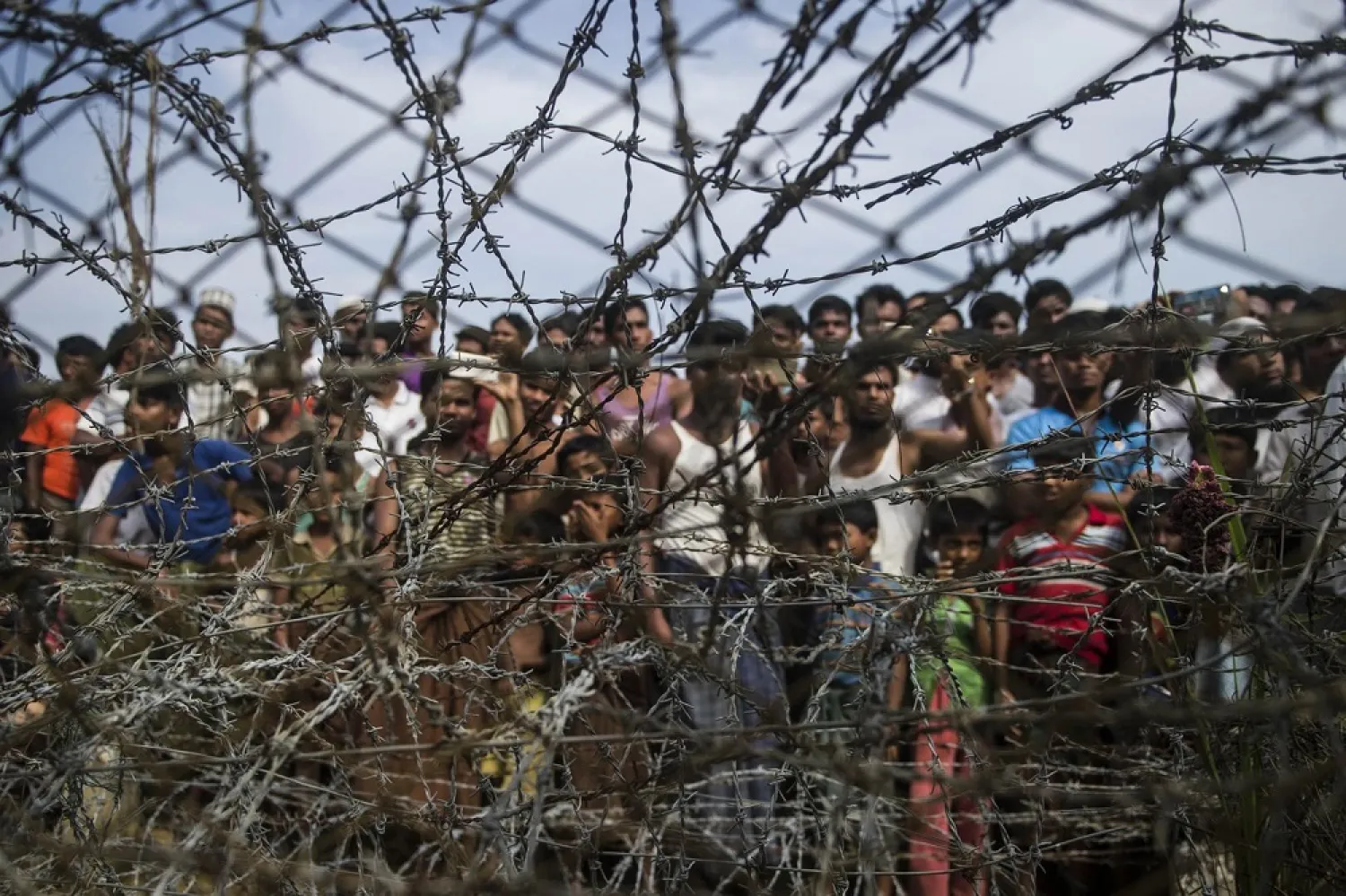Two Myanmar soldiers have been taken to The Hague after confessing to murdering minority Rohingya Muslims during a 2017 crackdown, two news organizations and a rights group reported on Tuesday.
The two men admitted to killing dozens of villagers in northern Rakhine state and burying them in mass graves, according to the New York Times, the Canadian Broadcasting Corporation and the non-profit Fortify Rights, citing statements the men made on videos filmed in Myanmar this year.
Reuters has not seen the videos cited by the news organizations. The New York Times said it could not independently confirm that the two soldiers committed the crimes to which they confessed.
Myanmar government and military spokesmen did not answer calls seeking comment.
The reports said the men had been in the custody of the Arakan Army insurgent group, which is now battling Myanmar government troops in Rakhine state, when they made the admissions and were later taken to The Hague in the Netherlands, where they could appear as witnesses or face trial.
It was not clear from the reports how the men fell into the hands of the Arakan Army, why they were speaking, or how they were transported to The Hague and under whose authority.
A spokesman for the International Criminal Court (ICC), based in The Hague, said it did not have the men in custody.
"No. These reports are not correct. We don't have these persons in the ICC custody," said the spokesman, Fadi el Abdallah.
Payam Akhavan, a Canadian lawyer representing Bangladesh in a filing against Myanmar at the ICC, said the two men had appeared at a border post requesting the protection of the government and had confessed to the mass murder and rape of Rohingya civilians in 2017.
"All I can say is that those two individuals are no longer in Bangladesh," he said.
A spokesman for the Arakan Army, Khine Thu Kha, said the two men were deserters and were not held as prisoners of war. He did not comment further on where the men were now, but said the group was "committed to justice" for all victims of the Myanmar military.
Myanmar has repeatedly denied allegations of genocide, saying its military operations in 2017 were targeting Rohingya militants who attacked police border posts.
The ICC is investigating the crime against humanity of forced deportation of Rohingya to Bangladesh, as well as persecution and other inhumane acts.
A statement from the ICC Prosecutor's Office said: "The office does not publicly comment on speculation or reports regarding its ongoing investigations, neither does the office discuss specifics of any aspect of its investigative activities."
Myanmar is also facing charges of genocide at the International Court of Justice, also in The Hague, though that body does not bring cases against individuals or hear witnesses.









